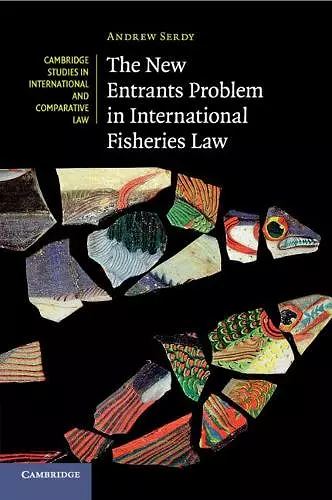The New Entrants Problem in International Fisheries Law
Format:Paperback
Publisher:Cambridge University Press
Published:20th Dec '18
Currently unavailable, and unfortunately no date known when it will be back

International agreements on allocation of fish stocks do not apply to other States - can they be prevented from upsetting hard-fought bargains?
Is international fisheries law inevitably moving towards a property-rights regime? Despite regional fisheries management organisations (RFMOs)already perceptibly adopting this approach, they are ambivalent about it and its consequences remain underanalysed. In this book, Andrew Serdy explores the implications revealed by the practice of fishing States and RFMOs and suggests ways forward.Are international fisheries heading away from open access to a global commons towards a regime of property rights? The distributional implications of denying access to newcomers and re-entrants that used the resource in the past are fraught. Should the winners in this process compensate the losers and, if so, how? Regional fisheries management organisations, in whose gift participatory rights increasingly lie, are perceptibly shifting their attention to this approach, which has hitherto been little analysed; this book provides a review of the practice of these bodies and the States that are their members. The recently favoured response of governments, combating 'IUU' - illegal, unregulated and unreported - fishing, is shown to rest on a flawed concept, and the solution might lie less in law than in legal policy: compulsory dispute settlement to moderate their claims and an expansion of the possibilities of trading of quotas to make solving the global overcapacity issue easier.
ISBN: 9781108735254
Dimensions: 228mm x 152mm x 26mm
Weight: 1000g
514 pages